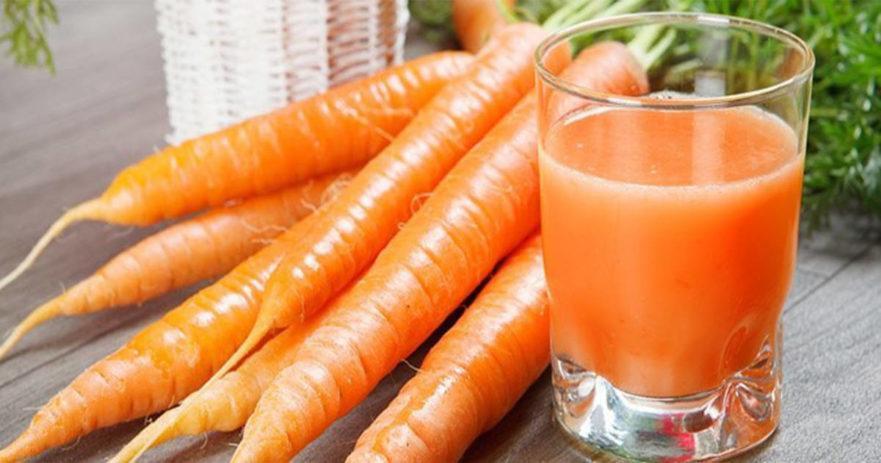Juicing has become increasingly popular in recent years and is now a multi-million dollar industry. Fresh fruit and vegetable juices can be purchased at most grocers, farmers’ markets, and shops dedicated to fresh juice. They can also be made at home with juicing equipment.
Carrots are a common ingredient in many juices, as they provide a flavour that pairs well with many other fruits and vegetables.
Aside from taste, carrot juice may also provide numerous health benefits. Read on to learn more about the potential health benefits and possible risks of drinking carrot juice.

Nutritional information
Carrot juice is nutritionally dense and a more healthful alternative to many fruit juices. According to the United States Department of Agriculture National Nutrient Database, 1 cup of canned carrot juice contains:
94 kilocalories (kcal); 2.24 grams (g) of protein; 0.35 g of fat; 21.90 g of carbohydrate; 1.90 g of fibre.
The same amount of juice provides a variety of vitamins and minerals, including:
689 milligrams (mg) of potassium; 20.1 mg of vitamin C; 0.217 mg of thiamine; 0.512 mg of vitamin B-6; 2,256 micrograms (mcg) of vitamin A; 36.6 mcg of vitamin K.
Health benefits of carrot juice
Carrot juice is nutritious and may be beneficial for a range of health conditions:
Carrots contain antioxidants, which may explain their role in cancer prevention. In a review of studies, researchers looked at the effect of eating carrots on the risk for stomach cancer.
They concluded that eating carrots was associated with a 26 percent lower risk for stomach cancer. However, they did not specify how many had to be eaten to lower stomach cancer risk. More controlled studies are needed to confirm this association.
Leukemia
More research is needed, but carrot juice may have a future role in leukemia treatment.In one study, researchers looked at the effect of carrot juice extracts on leukemia cells. The carrot juice extracts caused the leukemia cells to self-destruct and stopped their cell cycle.
Breast cancer
The high levels of carotenoids in carrot juice may help to lower the risk of breast cancer returning.
A study of breast cancer survivors looked at the effect of carrot on levels of carotenoids, markers of oxidative stress, and markers of inflammation in the blood.
The researchers reported that higher levels of carotenoids in the blood were associated with a lower risk of breast cancer returning.
During the study, participants consumed 8 ounces of carrot daily for 3 weeks. At the end of the study, the women had higher blood levels of carotenoids and lower levels of a marker associated with oxidative stress.
Chronic obstructive pulmonary disease (COPD)
Carrot juice is high in vitamin C. Researchers looked at the association between dietary vitamin C intake and chronic obstructive pulmonary disease (COPD) in Korean adults aged 40 years or older.
They found that people with COPD had significantly lower intakes of multiple nutrients found in carrot juice, including carotene, potassium, vitamin A, and vitamin C, than people without COPD.
However, people with COPD also ate significantly less food overall than people without COPD.
For people who smoked heavily, the risk of COPD is lower in those who consumed more vitamin C than those who consumed very little.
Juicing tips and recipes
Carrot juice contains less fibre and more sugar than raw carrots.
According to Stanford Health Care, the vitamin and mineral nutrients in 1 cup of carrot juice are almost equivalent to the amounts in 5 cups of chopped carrots.
While fresh fruit and vegetable juices do provide plenty of nutrients, they do not contain as much fibre as fresh fruits and vegetables. Also, they contain more sugar per cup than whole fruits and vegetables.
For example, 1 cup of carrot juice contains 2 g of fibre and 9 g of sugar, while 1 cup of cubed, raw carrots contains 3.5 g of fibre and 6 g of sugar.
Making fresh carrot at home requires a juice extractor. Carrots can be combined with other fruits and vegetables to make tasty juices.
Medical News Today










